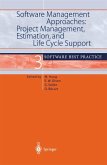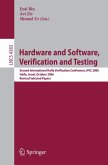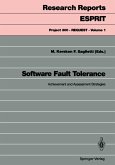As an engineering discipline, Web engineering must provide principles, methodologies and frameworks to help Web professionals and researchers develop applications and manage projects effectively. Mendes and Mosley have selected experts from numerous areas in Web engineering, who contribute chapters where important concepts are presented and then detailed using real industrial case studies. After an introduction into the discipline itself and its intricacies, the contributions range from Web effort estimation, productivity benchmarking and conceptual and model-based application development methodologies, to other important principles such as usability, reliability, testing, process improvement and quality measurement. This is the first book that looks at Web engineering from a measurement perspective.
The result is a self-containing, comprehensive overview detailing the role of measurement and metrics within the context of Web engineering. This book is ideal for professionals and researchers who want to know how to use sound principles for the effective management of Web projects, as well as for courses at an advanced undergraduate or graduate level.
Dieser Download kann aus rechtlichen Gründen nur mit Rechnungsadresse in A, B, BG, CY, CZ, D, DK, EW, E, FIN, F, GR, HR, H, IRL, I, LT, L, LR, M, NL, PL, P, R, S, SLO, SK ausgeliefert werden.









